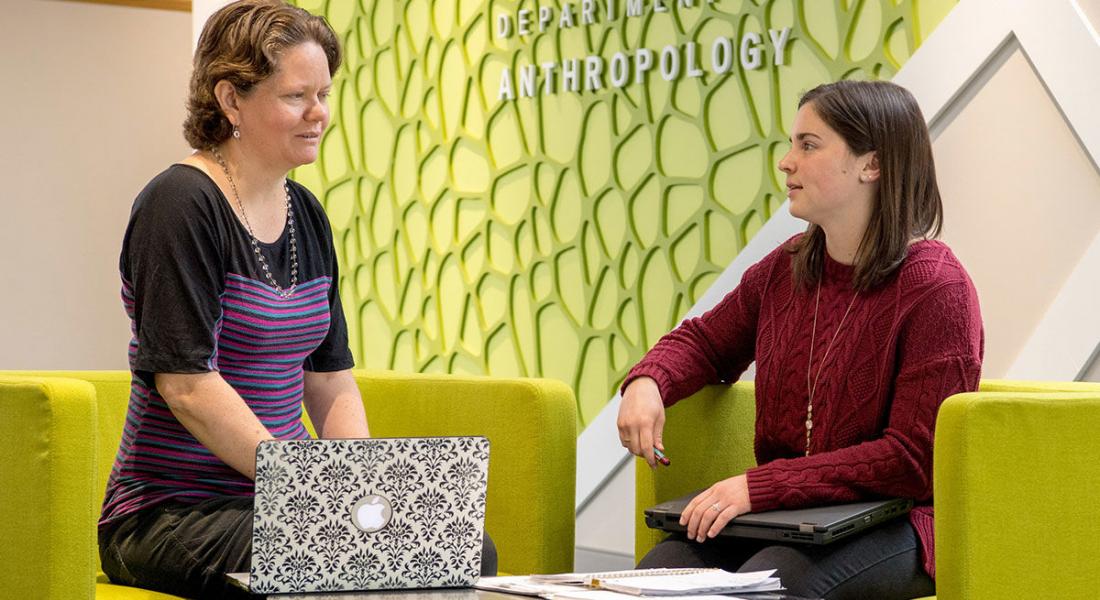
When a woman walks into a hospital in Mexico to have a baby, she may have to prepare for more than just the rigors of childbirth. She may be facing physical, mental and emotional tolls inflicted by her doctor, as well.
Faculty Fellow Vania Smith-Oka has met women who have endured unnecessary medical procedures and been strapped to tables. She’s heard of women forced to have cesarean sections because a doctor determined that they weren’t listening well enough.
She knows of doctors who will taunt a woman who screams during labor. There are women who question a doctor and are abandoned by medical personnel to give birth alone.
“It’s a worldwide issue, but it’s incredibly prevalent in Mexico. It can emerge when there’s a class difference between physicians and patients — or ethnic, racial, and other differences,” said Smith-Oka, an associate professor in the Department of Anthropology. “But the primary, undergirding issue is gender. Because the patients are women, they are perceived as and treated as second-class citizens.”
As a medical anthropologist, Smith-Oka is interested in how larger institutions shape the lives of the people who interact within them. In this case, she wants to know how medical professionals, tasked with caring for patients, can create a system that abuses some of their most vulnerable patients.
She and graduate students are spending time in hospitals and doctor’s offices in the east-central Mexico city of Puebla to understand how such a culture evolves.
“We’re looking at how doctors are trained to act, to think, the assumptions they espouse and how they acquire this broader culture of practice,” said Smith-Oka, who is planning to use her research in her second book. “Is this something they learn from other doctors or in medical school?”
An abrupt transition
Smith-Oka became interested in the effects of institutions on marginalized populations and reproductive care while working on her doctorate at the University of Illinois-Chicago. Then, she traveled to a small indigenous village in Mexico to learn about traditional healers, including the medicinal plants they gathered from nearby fields and forests, and the rituals they practiced.
But all anyone wanted to or would talk about was a government program that essentially paid women to send their children to school and health clinics.
The program had its merits, reaching nearly 6 million families throughout the country, but the women Smith-Oka encountered were treated poorly once enrolled. After they had come to depend on the monthly cash payments to survive, the doctors and nurses that ran the clinics would threaten to cut off money unless mothers submitted to other requirements.
These included attending social hygiene talks, in which they were lectured on ideas of proper motherhood that often ran counter to villagers’ cultural norms, or cleaning and maintaining the clinics and other facilities tied to the program. The tasks could become onerous and time-consuming, taking women from their families and villages for hours and even days at a time.
“Part of my research did look at the traditional medicines, but in the end, ultimately, it was the voices of these women and their concerns that made me realize there were more pressing questions to be answered,” Smith-Oka said. “There was the coercion that once we have you in this space, there are these additional and onerous expectations we have of you, and they had to do these things or they could lose a significant amount of monthly income.”
While Smith-Oka said the switch from work on medicinal plants to the effects of institutions on women’s lives was somewhat abrupt, it quickly became a passion and led to her first book, Shaping the Motherhood of Indigenous Mexico, published in 2013.
Opening pathways
Students can get a feel for Smith-Oka’s work in a College Seminar course she teaches, The Culture of Medicine: How Doctors Think. The class looks through different cultural lenses to explore the ways in which physicians are trained, their views of themselves, their interactions with others, and how they shape the health and lives of their patients.
“Students get to read things across the different units of the College, watch movies in light of these questions, and read novels, memoirs, and ethnographies,” she said. “We cover a lot of different ways to look at the issue.”
Between book projects and teaching, Smith-Oka also serves as the department’s director of graduate studies, advising Ph.D. students in the program, which launched in 2014. The first of its now six cohorts graduated last year.
She received the Graduate School’s 2019 Director of Graduate Studies Award for, among other reasons, “her supportive efforts to open pathways for students’ careers that balance a commitment to their academic training with a commitment to their well-being.”
“We have really great students who do fascinating work, many of them bridging two or more subdisciplines,” she said. “It’s been a lot of work, but it’s been worth it. It’s incredibly rewarding to see.”
Original story posted in Arts & Letters.





